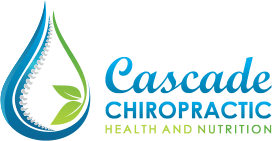I see lots of children in my practice. And although many people question the need for children to receive care unless they are sick, I believe that “an ounce of prevention is worth a pound of cure,” as they said in the old days.
Here are some examples of the children I have seen recently…
- A 9 year old girl who presents slightly overweight, with her skin darkened around her neck and armpits. She craves sweets and her MD has suggested she may be pre-diabetic.
- A 7 year old boy presents with anxiety about going to school and gets tummy aches on the way to the point where mom has to turn around and go home. He has missed 50- 60% of his school days in the first 2 months of school.
- A 15 year old with acne and mood swings. Bad PMS and an inability to focus on her schoolwork. Her MD wants to put her on birth control.
- A newborn infant who can’t poop without a suppository.
- A 4 year old boy with sleep issues and difficulty at pre-school. He causes disruption with other children and falls asleep during school time.
- A 13 year old girl with a rash across the shoulders and under the bra line. Moderately overweight, she has trouble going to sleep at night and craves sugar, bread, fruit, etc.
These are very real challenges that many families are facing. Oftentimes, through no fault of their own, these children are struggling with everyday activities. Sitting for several hours trying to focus on what the teacher says, getting along with siblings and others who might create conflict, sleeping soundly through the night; we should all be able to do these things, but sometimes we have challenges. Fortunately however, it can be improved. What we are learning about the gut-brain connection is that there are many ways a child’s gut and digestive capacity can be a contributing cause to their inability to focus, concentrate, have appropriate behavior etc. They may have been exposed to any number of causative or contributing factors in order to get to this place.
Here are some reasons why your child, family friend, or grandchild may be struggling with one or more of the above examples.
- Cesarean birth
- Adrenal stress
- Antibiotics
- A poor diet
- Excess sugar in the diet
- Fast food
- Excess family stress
- Sodas
- Drinking out of plastic water bottles
- Prescription medications
When a child is born, there are certain things that should be present, one of those is good gut flora (the bacteria that normally live in the digestive tract that digests their food). The immune system is also very intimate with the digestive tract and so important to the long term health of each and every child. Long term complications of poor digestive health can include learning difficulties, ADHD like symptoms, reflux, acne, constipation, obesity, anxiety and so much more.
Most of us have no idea where our initial exposure to that good bacteria comes from; its mom! During the delivery process mom shares her good bacteria with baby. There are many ways to mess this up, but happily there are also many ways to restore it.

Diet can be one of those key ways to restore and maintain your child’s health. Beginning at birth, whenever possible, your child should be breastfed. When this is not possible, because the brain is developing at such an amazing rate and those good fats are vital to proper development, think about adding DHA and EPA (sources of Omega 3s) to their diet. If there has been a C section birth then probiotics are also necessary to provide that good bacteria that is missing. For infants there are specific probiotics that are needed. For youth, teens, and adults there are a variety of probiotic options, which could also include fermented veggies. As infants grow, their diet should also include plenty of vegetables with a variety of colors, protein (both plant and animal), good fats, and nuts and seeds. Many times we find that children have favorite foods or habits that eliminate completely one or more of these food groups. For a short time this may not be a big deal, but over several months and growth periods, we can see deficiencies develop, behaviors change, and health deteriorate.

Think of a growing child like a house being built. There are certain things under construction at certain times, and once the slab is poured for example, it is too late to put an extra sink in the kitchen. Windows of opportunity open and close quickly, and when they are open, we need all the nutrients available or something will be built to a lesser quality. Not our ideal outcome. Nutrition can be fun and interesting for our young ones, however it does require us to put in some effort. We can’t routinely run through fast food or make them food from a box, we need to shop the perimeter of the grocery store, go to the farmers market (with the kids), and include them in the food preparation process as soon as they are able. When they are educated at a young age as to why healthy food is so important, they will make better choices when they are on their own. If we do have to get food on the go, consider going to the grocery store and picking up healthier options, maybe some fruit, some deli meat, etc. If you tell your kids that as a treat you are taking them to McDonald’s, what message does that send? The message is that fast food must be the best, when in fact it is the worst. They use the lowest quality foods, they are not organic, and have the longest shelf life so they are very difficult to digest, therefore providing us with the least amount of nutrition.

So when do we begin to be concerned about our child’s health? Ideally pre-conception. If that’s not an option, at birth. If that ship has sailed, now! It’s never too late to begin a healthier lifestyle. Start simply with a healthy breakfast. Protein, a good fat, and a fruit or vegetable are all contained in a healthy breakfast. Some options to consider are:
- Smoothies with fresh fruit, veggies, protein powder, a non-dairy beverage
- Eggs fixed any style – fried, poached, hard boiled, frittata, etc
- Leftover dinner from the night before
- Whole grain cereals low in sugar with non-dairy beverage (oatmeal, buckwheat, etc)
- Overnight oats – tons of recipes on Pinterest
- Paleo muffins made with almond flour and coconut flour
It’s so much fun to be creative in the kitchen! And the benefits are so many for our children and ourselves. Healthier families create less stress for everyone, save us money on healthcare costs, and keep our children functioning at optimum physical, emotional, and social levels. It’s a win-win.
CONTACT:
Dr. Virginia S. Irby D.C.,DABCO, ACN
Cascade Chiropractic
2371 Iron Point Rd. Ste. 130
Folsom, CA 95630
916-844-2800
